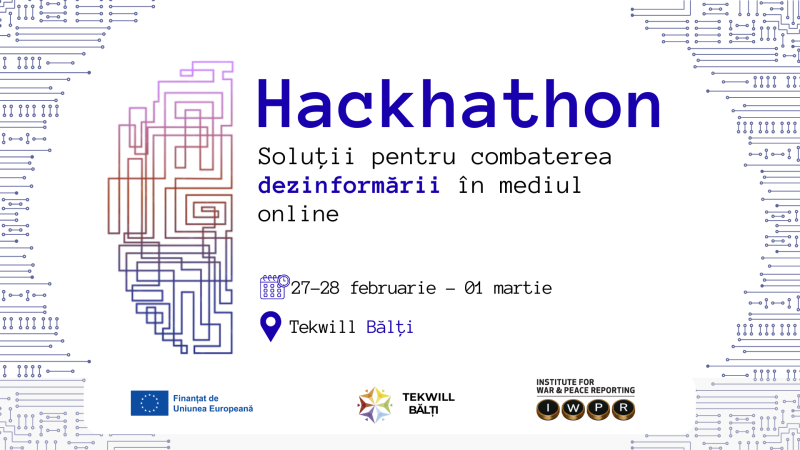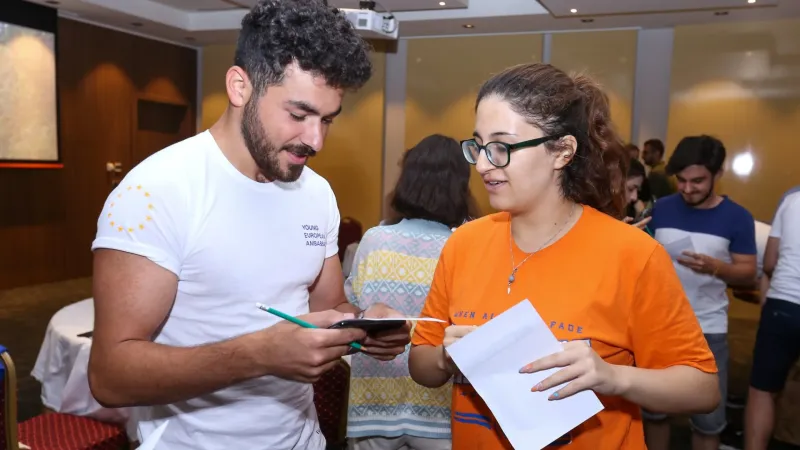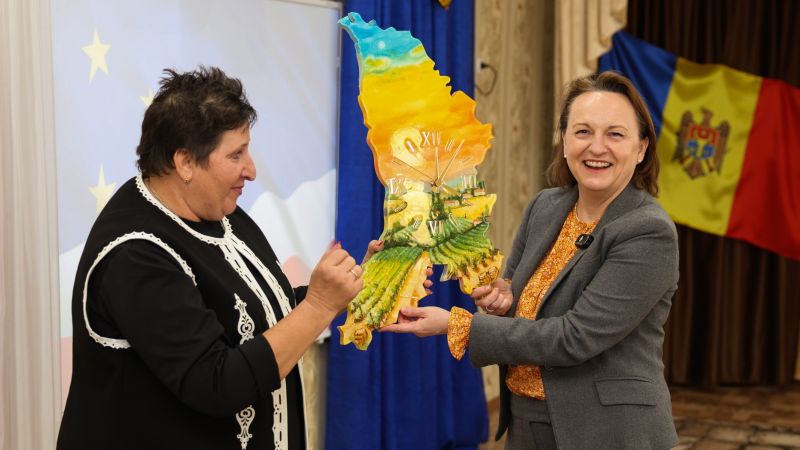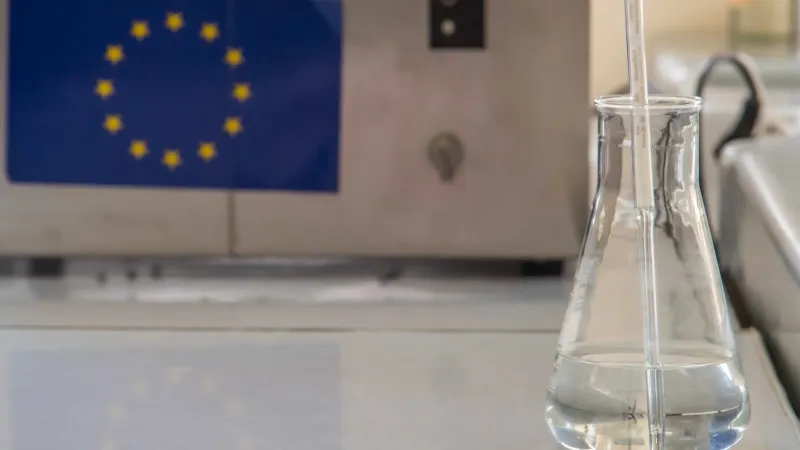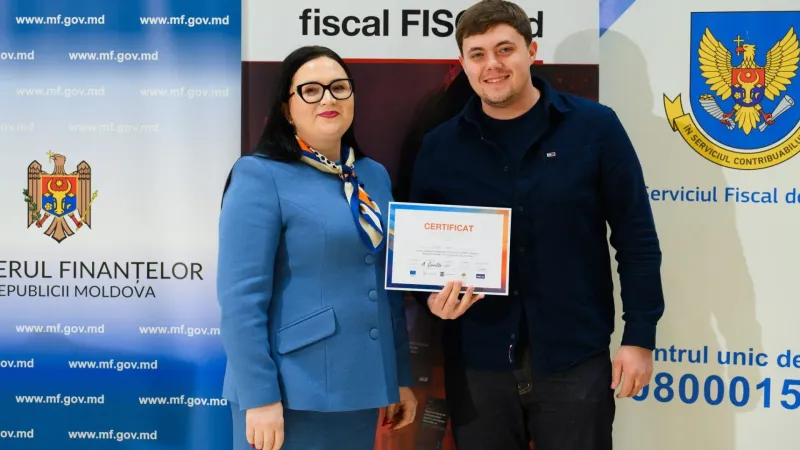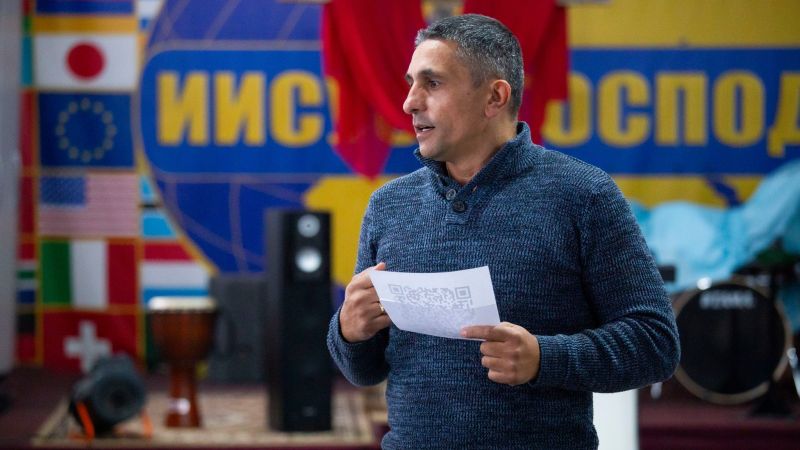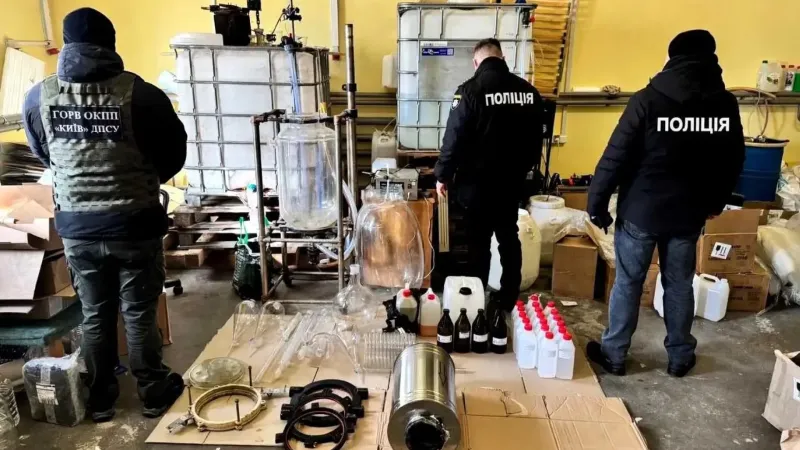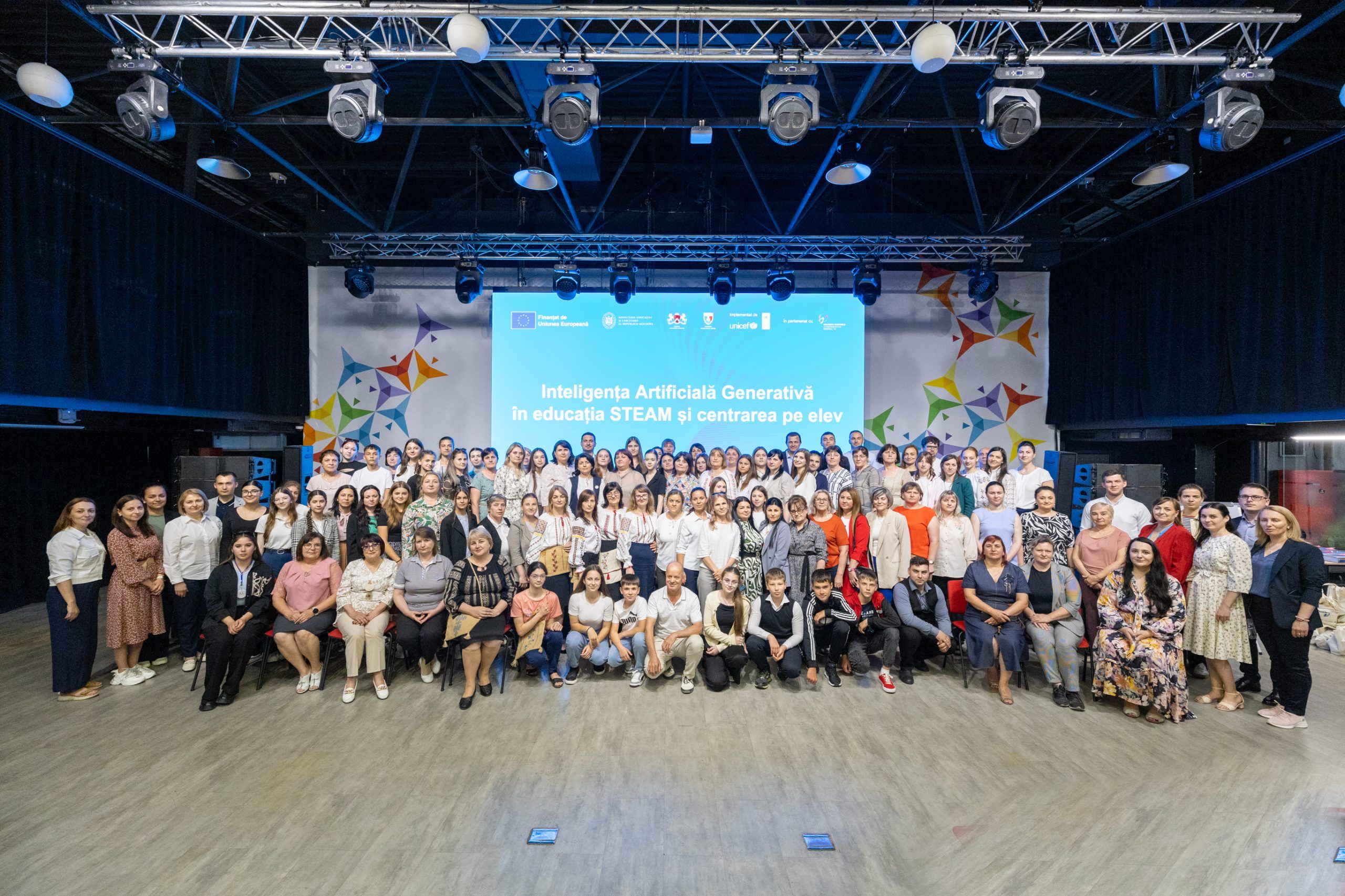
Circa 400 de elevi și 100 de profesori din Cahul și Ungheni au creat proiecte STEAM cu ajutorul inteligenței artificiale generative
Cu suportul Uniunii Europene, a fost lansat un curs digital dedicat fortificării cunoștințelor cadrelor didactice în utilizarea Inteligenței Artificiale Generativă. Peste 100 de elevi și profesori din 12 școli din Ungheni și Cahul au participat la un eveniment de totalizare a rezultatelor proiectului „Consolidarea practicilor inovative de predare-învățare centrate pe elev în școlile din regiunile cheie: Ungheni și Cahul prin utilizarea tehnologiilor digitale și proiectelor STEAM”, finanțat de Uniunea Europeană și implementat de UNICEF.
În cadrul întâlnirii, adolescenții și cadrele didactice au prezentat proiectele școlare STEAM la care au lucrat în ultimele luni, pentru a crea soluții inovatoare care să contribuie la rezolvarea unor probleme reale din comunitate. Pentru realizarea inițiativelor au fost implicați în total 385 de elevi și 83 de profesori din cele două raioane.
Proiectul STEAM „Femei în știință: Inspirație pentru viitor”, realizat de Gimnaziul „Gheorghe Asachi”, din satul Cucoara, raionul Cahul, și-a propus să abordeze problema prezentării insuficiente a realizărilor femeilor în domeniul științific reflectat în curriculumul școlar, fapt ce contribuie la menținerea stereotipurilor de gen în rândul elevilor. Proiectul a urmărit să ridice gradul de conștientizare și înțelegere a contribuțiilor semnificative ale femeilor în știință, subliniind impactul lor asupra progresului științific și evidențiind importanța egalității de gen în acest domeniu.
Proiectul STEAM „EcoRevista Agro-Tur Sculeni”, dezvoltat de Liceul Teoretic Sculeni, raionul Sculeni, și-a propus să educe elevii din clasa a VIII-a cu privire la importanța agroturismului în dezvoltarea durabilă a comunității locale, explorând conceptele și practicile agroturismului printr-o abordare STEAM. Produsul final al proiectului este o revistă digitală interactivă, creată de elevi, ce cuprinde articole și reportaje despre experiențe agroturistice locale.
Proiectul STEAM „Plantăm copaci pentru viitor” realizat de Liceul Teoretic „Elada” din satul Măcărești, raionul Ungheni, a abordat problema degradării calității aerului în localitate. Poluarea aerului și emisiile de gaze cu efect de seră reprezintă provocări majore pe care elevii le-au conștientizat. Plantarea copacilor a oferit o soluție naturală prin absorbția dioxidului de carbon și îmbunătățirea microclimatului, aspect evidențiat de elevii clasei a VII-a, care au propus o serie de activități ce ar face proiectul STEAM o soluție viabilă pentru satul Măcărești.
Pentru a celebra realizările școlilor participante în proiect, a fost publicată o carte care evidențiază bunele practici și succese obținute de elevi și profesori pe parcursul implementării proiectelor STEAM. Cartea include o descriere detaliată a activităților desfășurate la fiecare disciplină, evidențiind dezvoltarea proiectelor printr-o abordare interdisciplinară. Aceasta servește drept o resursă valoroasă de inspirație pentru toate cadrele didactice din Moldova interesate de educația STEAM prin metode inovative și tehnologii digitale.
Datorită adoptării eficiente a noilor tehnologii informaționale, profesorii și-au dezvoltat cu succes competențele digitale și au căpătat încrederea necesară pentru a utiliza instrumentele de inteligență artificială generativă în procesul de predare. Ca urmare a aplicării cunoștințelor dobândite în situații practice, în cadrul proiectelor STEAM, elevii și-au consolidat abilitățile esențiale pentru viitor, precum rezolvarea problemelor, colaborarea în echipă, și gândirea critică.
În cadrul evenimentului, a fost lansat un nou curs digital dedicat cadrelor didactice din Moldova. Cursul, intitulat „Inteligența Artificială Generativă în educația STEAM și centrarea pe elev”, urmărește formarea profesorilor în adoptarea unor metode inovatoare de predare și învățare prin intermediul tehnologiilor digitale, inclusiv Inteligența Artificială Generativă, pentru a crește interesul elevilor față de învățare
Explorarea conținuturilor cursului va fi posibilă prin intermediul elementelor interactive: informații text cu exemple aliniate specificului educațional din Republica Moldova, video tutoriale, sarcini practice, teste de evaluare, și schițe de proiecte didactice și proiecte STEAM. Noul curs poate fi accesat gratuit pe platforma www.tekwill.online.
„Mulțumim partenerilor noștri UNICEF, PNUD, Ministerul Educației și Cercetării și ATIC pentru promovarea practicilor inovative în educație. Uniunea Europeană va continua să sprijine digitalizarea și transformarea educațională în Republica Moldova, oferind numeroase oportunități pentru elevi și profesori. Încurajăm cadrele didactice din Moldova să exploreze activ noul curs digital creat și să-și dezvolte abilitățile digitale în Inteligența Artificială Generativă”, a declarat Jan Demitovits-Mekelainen, Ofițer Programe Delegația Uniunii Europene în Republica Moldova.
„Participarea elevilor și profesorilor în aceste proiecte STEAM este un exemplu de cum educația poate deveni un catalizator al schimbării pozitive în comunitate. Este esențial să oferim cadrelor didactice instrumentele necesare pentru a integra tehnologiile digitale și inovația în procesul educațional, contribuind astfel la dezvoltarea competențelor viitoarelor generații”, a declarat Irina Gîncu, Ofițer Programe de Educație UNICEF Moldova.
„Creșterea calității procesului educațional este un obiectiv cheie al Ministerului Educației și Cercetării. Ne dorim un învățământ de calitate, relevant și digitalizat, contribuind astfel la formarea unui viitor prosper pentru țara noastră în cadrul Uniunii Europene. Mulțumim partenerilor noștri, Uniunea Europeană, UNICEF, PNUD și ATIC pentru sprijinul acordat în promovarea politicilor educaționale și cadrelor didactice, pentru profesionalismul, dedicația și rezultatele frumoase obținute în cadrul proiectului”, a adăugat Angela Prisăcaru, Consultant principal al Ministerului Educației și Cercetării al Republicii Moldova.
„Echiparea cadrelor didactice din Republica Moldova cu abilități, resurse și instrumente moderne rămâne o prioritate pentru ATIC și proiectele Tekwill în contextul transformării digitale a educației și adaptării la cerințele și nevoile societății contemporane. Suntem bucuroși să ne aliniem eforturile cu partenerii proiectului pentru a dezvolta resurse digitale interactive de înaltă calitate, în scopul capacitării profesorilor și elevilor din Republica Moldova cu ultimele inovații tehnologice, precum Inteligența Artificială Generativă”, a menționat Ana Chirița, Directoare Proiecte Strategice ATIC.
Proiectul „Consolidarea practicilor inovative de predare-învățare centrate pe elev în școlile din regiunile cheie: Ungheni și Cahul prin utilizarea tehnologiilor digitale și proiectelor STEAM”, finanțat de Uniunea Europeană și implementat de UNICEF, a fost dezvoltat sub egida Ministerului Educației și Cercetării, în cadrul programului EU4Moldova: Regiuni-cheie. Activitățile proiectului sunt realizate în parteneriat cu Asociația Națională a Companiilor TIC (ATIC), în perioada 15 septembrie 2023 – 30 iunie 2024.
